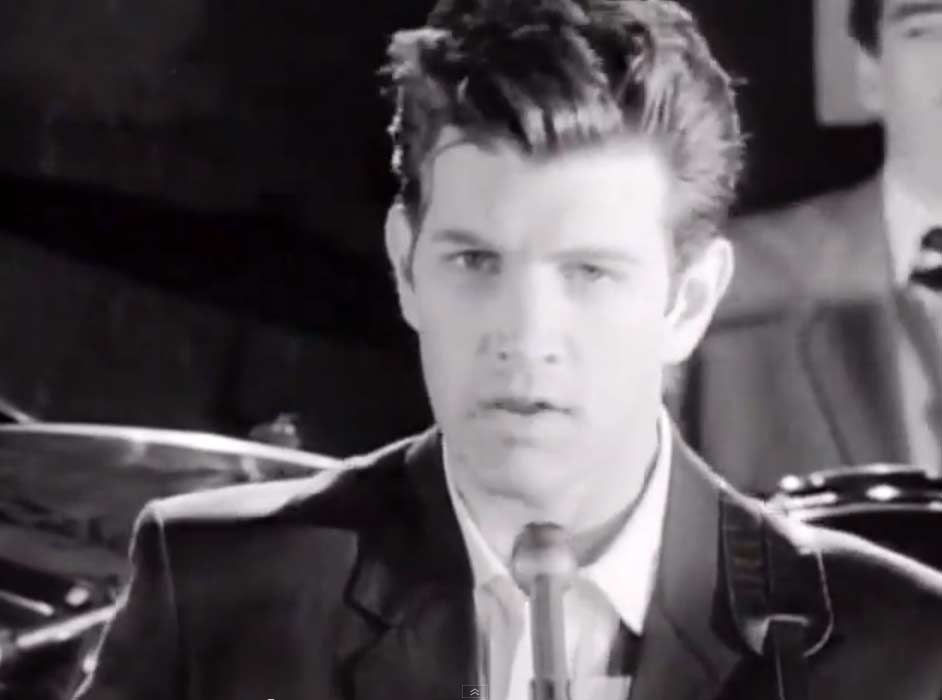Chris Isaak – “Blue Hotel”:
A motel of heartbreak, echoing across decades
Released on 1 December 1986 as part of his second studio album Chris Isaak, “Blue Hotel” marks a key moment in Isaak’s emergence as a modern-day crooner. With a sound rooted in the heartbreak ballads of the 1950s, the song offered something distinctly out of step with its era — a haunting echo of romantic despair dressed in noirish Americana.
Though it didn’t make an impact on U.S. charts at the time, it became a sleeper success in Europe after a 1991 re-release, ultimately climbing to No. 17 on the UK Singles Chart and gaining widespread airplay across the continent. Like the hotel of its title, the song lingered — waiting for listeners to find it.
A Sound From Another Time
Musically, “Blue Hotel” is pure atmosphere. Isaak weaves rockabilly influences, desert-dry guitar echoes, and shimmering reverb into a soundscape that feels as cinematic as it is intimate. Echoes of Roy Orbison, Elvis Presley, and a touch of Lynchian tension float through every note — even though Isaak’s collaboration with David Lynch wouldn’t come until years later, the sonic connection already existed.
At the center is Isaak’s voice: aching but controlled, expressive but never overwrought. When he sings “Blue hotel, on a lonely highway…”, it doesn’t feel like a lyric — it feels like a place. You’re not just hearing heartbreak; you’re walking through it.
Minimal Words, Maximum Feeling
The lyrics in “Blue Hotel” are deliberately sparse. There’s no narrative arc, no forced metaphor — just the essence of solitude and longing. The repetition of the phrase “Blue hotel” becomes almost hypnotic, anchoring the emotional landscape of the song like a neon sign blinking in the desert. There’s no resolution, only yearning — and that makes it feel real.
A Second Life in Europe
Although the song was largely overlooked in the U.S. on first release, its fortunes changed after the worldwide success of “Wicked Game” in 1990. In early 1991, “Blue Hotel” was reissued in the UK, and finally reached a wider audience — peaking at No. 17 and staying on the charts for eight weeks. It also found success in France, reinforcing Isaak’s status as an American romantic export with global appeal.
The music video — moody, minimal, and evocative — complemented the song’s tone without overshadowing it. Though not as stylized as Isaak’s later visual collaborations, it helped paint a portrait of the artist as a man out of time, standing in the ruins of love.
Why It Sticks
“Blue Hotel” works because it doesn’t try too hard. There’s no dramatic climax, no flashy production — just a voice in the void and a heart you can feel beating through the static. It’s a place you go when everything else has fallen away.
Chris Isaak would go on to greater commercial highs, but “Blue Hotel” remains one of his purest early statements — melancholic, magnetic, and utterly timeless.
